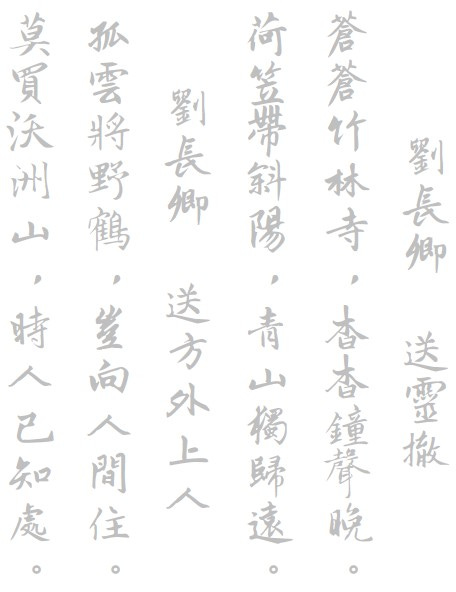Saying goodbye to the same monk twice
Liu Changqing had an important and not-too-pompous encounter with a religious master
The Departure of the Monk Clear Spirit
Liu Changqing
.
The temple’s almost hidden in bamboo,
Its evening bell comes from some distant space.
His straw hat caught the sunset’s slanting rays,
And took them back, alone, to his wild place.
.
A Parting Poem for a Monk
Liu Changqing
.
A soaring crane, a lonely cloud,
Not meant to live among the crowd—
Just don’t retreat to “wild” Wozhou:
An unknown place too many know.
We don’t know what passed between Liu Changqing and the monk Lingche (“Clear Spirit”), but it seems reasonable to guess that meeting the monk was an important experience for Liu, as he wrote two farewell poems to commemorate the occasion. (It’s not known if there were in fact two separate partings, or the two poems were written for a single occasion.)
The first is a fairly standard landscape poem, crafting a beautiful image of the monk, almost spotlighted by the setting sun, disappearing into the wild. It reminds us of the importance of wilderness, detachment from material life, and solitude.
The second poem takes up the same themes in a much more jocular fashion: Liu suggests that the well-known wilderness of Wozhou is now so well-trodden that it’s no longer possible to find real seclusion there. The poor monk will have to travel even farther afield to escape the clutches of vulgar society.
刘长卿 送灵撤
苍苍竹林寺,杳杳钟声晚。
荷笠带斜阳,青山独归远。
刘长卿 送方外上人
孤云将野鹤,岂向人间住。
莫买沃洲山,时人已知处。

